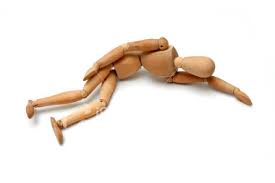
Having to deal with fainting, whether it’s yourself or someone else can be a scary position to be in, but there are ways to help you to handle the situation if such an incident occurs. Fainting is described as a sudden and temporary loss of consciousness which can be brought on for a variety of reasons.
If you ever find yourself in the presence of someone who’s fainted, the following tips will come in handy when it comes to dealing with the situation in a appropriate manner.
Keep calm
Although this is easier said than done, it’s important to stay as calm as possible during this time as stress will only worsen the situation and restrict you from thinking and acting quickly.
Keep them safe
Someone who is fainting or has fainted is unable to protect themselves, therefore it’s your responsibility to prevent them from hitting the ground and seriously hurting themselves in the process.
Think fast
If the individual does not regain consciousness within two minutes, it’s crucial to put them on their side in the recovery position so they’re supported by an arm and a leg. By tilting their head back and lifting up their chin, this should allow them to breathe properly. If they have not regained consciousness after several minutes or you cannot find a pulse, perform CPR if possible and seek emergency medical help immediately.
The aftermath
Once the individual has regained consciousness, you should ensure they’re as comfortable as possible by ensuring they stay on the ground and rest for up to 20 minutes – this will provide sufficient time for blood to return to the brain and they must not get up too quickly as this could cause them to become lightheaded once again.
Fainting can often stem from Dehydration and hypoglycemia (low blood sugar), therefore giving them some food and a drink is a great way to help them recover.
If you’ve suffered from fainting
If you suspect you’re about to faint, you can protect yourself by lying down in a position where your head is low and your legs are raised, as this will encourage blood flow to the brain.
It’s imperative for you to visit your GP after a fainting episode so they can determine why it happened and provide treatment so you can prevent fainting episodes in the future.